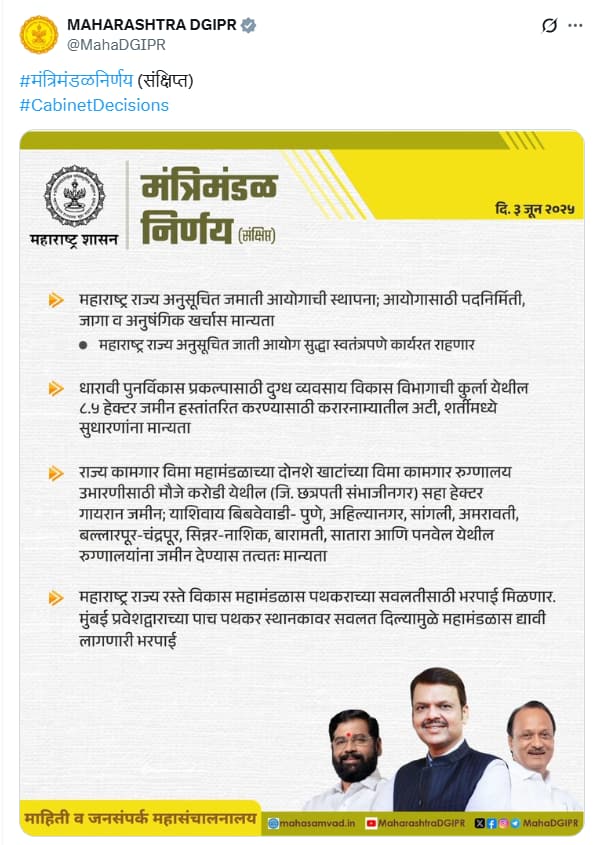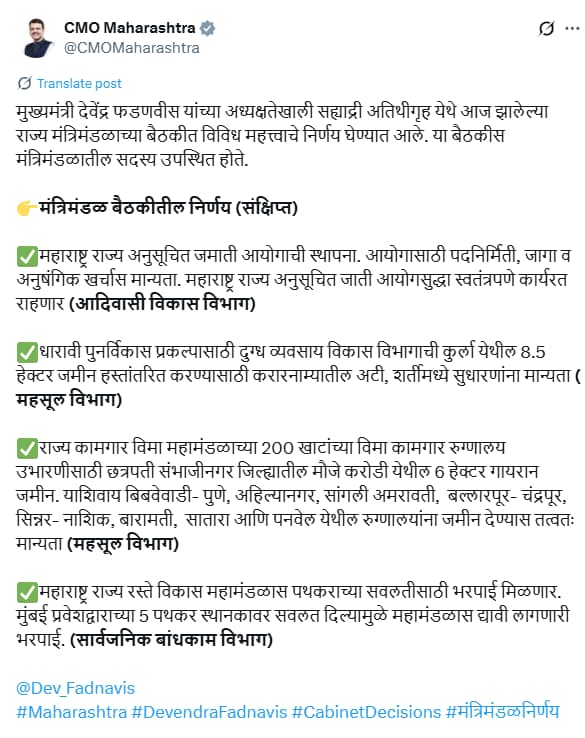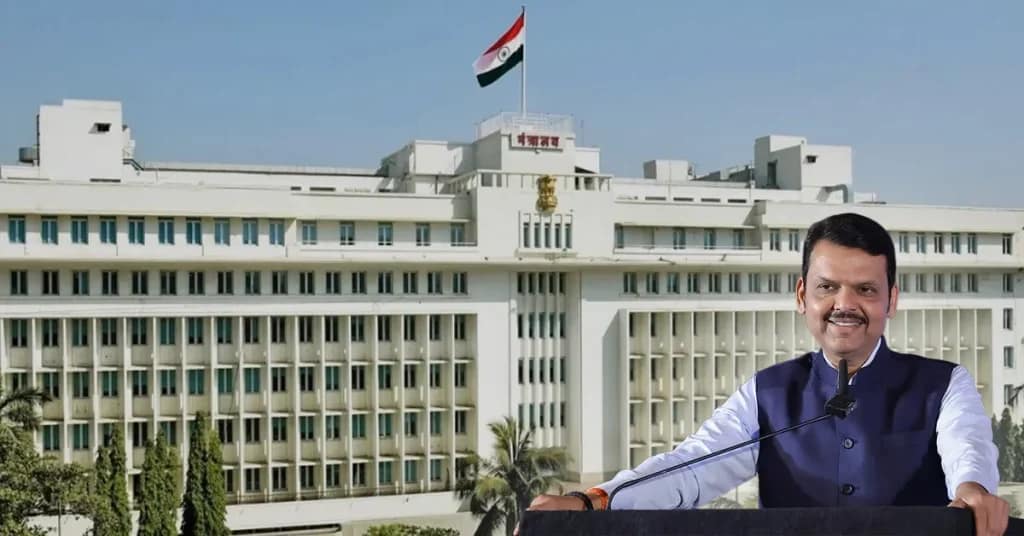The cabinet meeting chaired by Chief Minister Devendra Fadnavis on June 3 decided to form a separate and independent Maharashtra State Scheduled Tribes Commission, bifurcating the Maharashtra State Commission for SC and ST. The functionaries, the office space, and the provision for expenditure for the new commission were also decided and approved in this meeting. Meanwhile, the state government clarified that the Maharashtra State Scheduled Castes Commission will continue to function independently.

Maharashtra State Scheduled Castes and Tribes Commission
In the Maharashtra state budget for the year 2003-04, emphasis was given to social justice, social integration, and social responsibilities for the marginalized section of people. Since these were addressed by different departments, which were often not in sync, the then government decided to create a commission that’ll study the social, educational, economic, and political condition of the people of the Scheduled Castes and Tribes community and suggest various measures to uplift their conditions. Accordingly, the Maharashtra State Commission for SC and ST was created through a government decision dated 1st March 2005.
The state government had initially given this commission a time length up to 30 June 2009, which was, however, extended from time to time. Accordingly, the Maharashtra State Scheduled Castes and Tribes Commission is still functioning. The commission does not implement any direct financial scheme for the welfare of the backward classes but provides recommendations to the government.
Functions of the Scheduled Castes and Tribes Commission
- To study if the concessions and rights available to the Scheduled Castes/Tribes in the state are by the provisions of the Constitution and suggest recommendations to the state government.
- To inquire into the complaints of the Scheduled Castes/Tribes.
- To participate in the evaluation and planning process for the social and economic development of the Scheduled Castes/Tribes and to advise the government.
- To review the cases filed under the Scheduled Castes/Tribes Prevention of Atrocities Act, 1989, and the Civil Rights Protection Act, 1955, and the financial assistance provided to the aggrieved person.
- To receive and investigate complaints by the Scheduled Castes/Tribes employees regarding their workplaces.
- To advise the government regarding welfare schemes for the Scheduled Castes/Tribes.
- To take action on matters related to the welfare, reservation, protection, and development of the Scheduled Castes/Tribes under the provisions of the state government.
- To recommend the inclusion or exclusion of a caste in the list of Scheduled Castes/Tribes.

Fadnavis government’s initiatives for the development of tribals
There are some important objectives and reasons behind the establishment of an independent Maharashtra State Scheduled Tribes Commission by the Devendra Fadnavis government. This will specifically promote the social, economic, educational, and cultural development of the Scheduled Tribes (STs), as the commission will be solely responsible for studying the problems and demands of the Scheduled Tribes and guiding them accordingly. A commission, specifically for the STs, will be fast in its actions, recommending to the state government the effective plans and policies for the STs in the state and helping protect their constitutional, legal, and social rights. At the same time, an independent commission will be able to conduct independent inquiries and recommend measures in incidents related to the Scheduled Tribes.
The Scheduled Tribe communities have been known as socially and economically marginal sections for centuries. The government has introduced many schemes and policies to empower the ST communities in terms of education, jobs, and business opportunities and integrate them into society. The Devendra Fadnavis government has established the state ST commission to provide these welfare benefits to the ST communities in a more capable, transparent, and focused mechanism and to ensure a more effective participation of the ST communities in the government’s policies.
Related articles:

